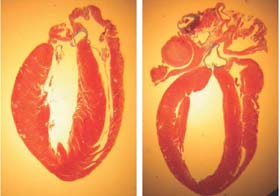The Laboratory of Molecular Signalling in Diabetes is a dynamic team of individuals focused on understanding the causes of type 1 and type 2 diabetes at a molecular level.
The Laboratory of Molecular Signalling in Diabetes is a dynamic team of individuals focused on understanding the causes of type 1 and type 2 diabetes at a molecular level. Our studies are guided by the discovery of genes and associated gene networks linked to diabetes risk and by known risk factors that predispose individuals to diabetes. The common forms of both type 1 diabetes and type 2 diabetes appear to result from a combination of genetic and acquired factors, and both diseases are increasing in prevalence. Despite some major advances, we do not yet understand the root causes of diabetes.
We study the role of the insulin-secreting pancreatic beta-cell in type 1 diabetes, type 2 diabetes, and other rare forms of diabetes. We are particularly interested in determining the molecular signalling pathways that control the survival and function of these insulin-secreting cells. These signals represent the key to understanding the disease and designing rational treatments.
In order to understand these processes, we employ state-of-the-art techniques including: molecular imaging, molecular biology and in vivo studies. In many cases we examine the role of a particular gene from the single-cell level (where the exact mechanism of its action can be established) to the level of the whole organism (where its role in total body energy homeostasis can be evaluated).
In the Laboratory of Molecular Signalling in Diabetes, we believe fundamental science is essential to finding a cure to diabetes. The lab is filled with motivated, hard-working staff, students and post-doctoral fellows working toward this goal.


